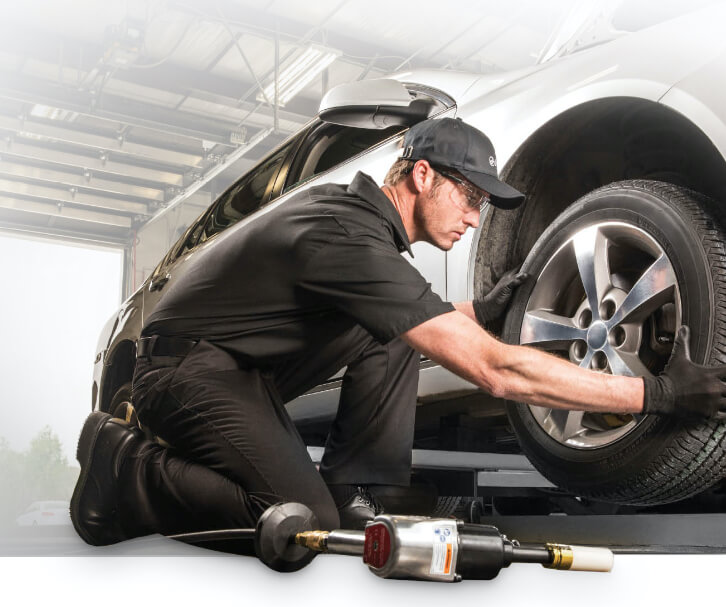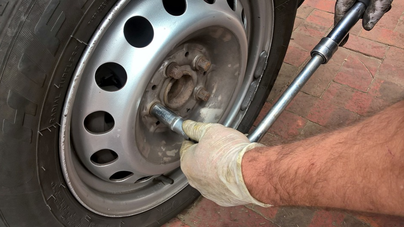Drive with Self-confidence: GMC Tires Service at Morris Tires
Drive with Self-confidence: GMC Tires Service at Morris Tires
Blog Article
Tire Service: The Influence of Weather
When it involves making certain optimum efficiency and safety and security when traveling, comprehending the effect of climate condition on tire solution is vital. From scorching warmth to icy roadways, each weather aspect can dramatically influence tire capability and general driving experience. By delving right into the impacts of varying climate condition on tires, drivers can get valuable understandings that may improve their car's performance and long life. In this conversation, we will explore the complex connection between weather and tire service, losing light on the importance of weather-specific tire upkeep techniques and considerations.
Warmth and Tire Performance
When exposed to heats, tires experience adjustments in performance that can significantly impact vehicle safety and handling. The heat produced from extended driving or warm climate problems triggers the tire rubber to soften, leading to minimized tread life and increased wear. As the rubber ends up being softer, the tire's grip when driving lessens, impacting stopping ranges and general traction. In severe situations, excessive warm can even trigger tire blowouts, positioning an extreme safety and security threat to the automobile and its passengers.

Cold Climate Impacts
Winter problems can have a significant effect on tire performance and safety. As temperature levels decrease, tire rubber can solidify, causing lowered traction on icy or snow-covered roads. In winter, tires may also lose atmospheric pressure extra swiftly, which can affect taking care of and gas effectiveness. Furthermore, cold temperature levels can create tire sidewalls to tense, boosting the threat of damages from fractures or various other roadway risks.
To reduce the results of winter on tires, it is crucial to regularly inspect tire stress and inflate them to the manufacturer's suggested levels. Using winter months or all-season tires designed for winter problems can additionally improve grip and grip on icy or snowy roads. Appropriate tire maintenance, including normal examinations for wear and damage, ends up being much more essential during chillier months to make certain optimal efficiency and security.
Rainy Issues Effect
Tires with worn-out footsteps are extra susceptible to hydroplaning, where a layer of water builds up in between the tire and the road surface, leading to loss of grip. To fight this, chauffeurs need to regularly examine their tires for adequate step depth and think about spending in tires particularly developed for wet conditions.
In addition, rainy weather can also reduce exposure, making it challenging for chauffeurs to see the roadway in advance clearly (GMC Tire Service). In such conditions, it is vital to adjust driving rates appropriately and maintain a read the article risk-free following distance to permit abrupt stops. Appropriately inflated tires can likewise aid in maintaining control on damp roadways by providing much better handling and grasp
Snow and Tire Security
Snow-covered roadways pose one-of-a-kind obstacles for chauffeurs, emphasizing the importance of correct tire choice and maintenance. When driving in snowy conditions, having the best tires can make a significant difference in safety and performance. Winter months tires are made with special rubber substances and walk patterns to offer much better traction on snow and ice compared to all-season tires. The much deeper treads and sipes of winter tires help grasp the road much better, decreasing the threat of sliding and slipping.

Moreover, vehicle drivers must take into consideration installing tire chains in severe snowy conditions. Tire chains supply extra grip by gripping the snow and ice, improving security and control. It is important to follow producer directions when setting up and making use of tire chains to avoid damage to the tires and automobile (GMC Tire Service). By choosing the right tires, keeping appropriate inflation, and thinking about added traction aids like tire chains, drivers can improve their security when browsing snow-covered roads.
Weather-Related Tire Upkeep
Weather-related tire upkeep incorporates a variety of techniques intended at guaranteeing optimal tire feature and long life in different weather circumstances. One vital aspect of weather-related tire maintenance is tire stress regulation. Evaluating tire walk consistently and replacing tires when walk wear gets to a certain depth is essential for preserving grip and security in unfavorable weather condition.
Conclusion
In conclusion, climate problems have other a considerable influence on tire efficiency and safety. From warm affecting tire pressure and wear to chilly weather lowering traction, it is essential to take into consideration the climate when maintaining and utilizing tires.
In this conversation, we will explore the intricate partnership in between weather condition conditions and tire service, losing light on the significance of weather-specific tire upkeep practices and factors to consider.

Report this page